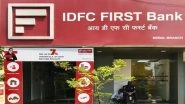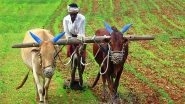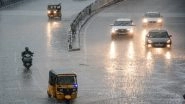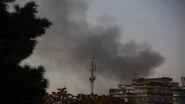This year, Muslims all over the world will observe Ramzan from the evening of May 15th to June 14th. While the holy month involves rigorous fasting, it is also followed by feasting. Fasting during Ramzan or Roza is a spiritual exercise but scientifically speaking, it also has a host of health benefits. But the intermittent spells of fasting and feasting, especially during the hot summer months can cause health problems if done incorrectly, especially those prone to dehydration, headaches and low blood sugar. If you plan on fasting, keep this critical nutritional tips in mind.

Always Start With Suhoor/ Sehri (Meal Before Dawn)
Considering that you will have your next meal only after the sun sets, you should never skip the pre-dawn meal or the suhoor/sehri. Going hungry for that long may cause low energy levels, dehydration, migraine and light-headedness. Skipping the suhoor or sehri may also cause overeating during iftaar, which isn’t good for your waistline.
Have a Nutritious Suhoor/ Sehri
The first meal of the day, much like your breakfast, should be nutritious and not just full of empty carbs. Instead of filling up on empty calories which may cause a sugar crash, have foods that are rich in fibre and complex carbohydrates that will release energy slowly throughout the day and maintain your blood sugar levels. Whole grain meals, fruits and proteins should become the mainstay of your first meal.
Have Plenty of Water
Dehydration during summers can have devastating consequences, especially if you are working and fasting during Ramzan. The summer months have been particularly harsh on us. So ensure that you keep yourself hydrated to prevent complications caused by dehydration.
Eat Hydrating Foods
In the scorching months, we are also blessed with a bounty of hydrating fruits like watermelons, cantaloupes and muskmelons. Ensure that you include these nutritious fibre-rich fruits in the sehri and the iftaar.
Avoid Caffeine
During sehri, resist the temptation to load up on coffee or tea. While caffeine does help in keeping you awake and alert for the rest of the day, it can also cause dehydration since it is diuretic in nature. Sweetening the beverages with too much sugar may also lead to a temporary high followed by a sugar crash.
Have Sweets in Moderation
Desserts may look tempting when you are hungry, but loading up on them during sehri or iftaar may not be such a wise thing to do. As explained in the previous point, too much sugar intake during fasting may lead to a severe crash. Instead of having refined sugar for energy, choose a healthy energy source like prunes, dates, raisins or Turkish apricots.
Hold Back the Salt
Too much salt may cause water retention, bloating and excessive thirst. So avoid over-seasoning the food or serving high sodium foods like chips, salted nuts, pickles and canned foods during the feast.
Divide Your Meal in Three Parts
A balanced meal should comprise proteins, fats, carbohydrates and fibre. So section your plate into three parts and fill one part with proteins such as meat, one with carbohydrates like rice or potatoes and the other with salads. Follow this technique so that your nutritional needs don’t suffer.
Break the Fast with Dates
Dates are delicious, nutritious nuggets of energy, which will pump you up with energy immediately after the fast. Follow it up with a glass of water and a warm soup. Start your iftaar on the right note.
Don’t Go Overboard
Roza is a time for introspection, spirituality, restraint and humility. Food should be considered a means of sustenance and nothing more. Keep in mind that fasting doesn’t give you the license to go overboard with the food or stray from the main message of Ramzan. Exercise moderation even when you are fasting.
(The above story first appeared on LatestLY on May 15, 2018 07:17 PM IST. For more news and updates on politics, world, sports, entertainment and lifestyle, log on to our website latestly.com).













 Quickly
Quickly


